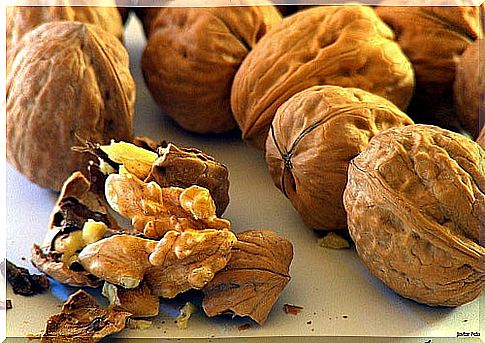7 Brain Care Tips
Our brain is a perfect machine made up of neurons and glial cells. In it is stored our precious treasure of experiences and memories that make up who we are. Here are 7 tips for taking care of the brain.
The brain is a fascinating ark in which the act of introducing new knowledge each day exercises the machine and further lubricates the engines.
Taking care of the brain requires knowledge of a series of tips that must be applied daily, such as eating and behavioral habits that will allow our gray matter to enjoy a good state, preventing or delaying some diseases.
Our lifestyle, at times, can cause illnesses that could be avoided: stress, hypertension, cholesterol, obesity, among others. These afflictions often lead to neurovascular accidents, and sometimes create a simple headache, originating from a day loaded with stress and anxiety.
In addition to these usual concerns, we point out other minor problems, such as small forgetfulness, that feeling of “having something on the tip of your tongue” and not remembering.
These little things can be improved if we try to improve our cognitive reserve and our mental strategies. How about we take note?
Tips for taking care of the brain
1. Take care of cognitive reserve

Everything we live, experience and even suffer is part of our “brain store”. They are memories that contribute to our growth and a place to look for memories, emotions, where we learn to make decisions based on everything we experience.
This is what we call cognitive reserve.
The greatest reserve and greatest protection against premature aging, as all this reserve forms new brain connections that strengthen our neuronal mass, and the more connections, the more new tissues, therefore, greater protection against possible diseases.
Hence the importance of experimenting and learning new things every day.
2. Take care of food

The brain is an organ that requires a lot of energy, in fact, it alone uses 20 to 30% of the calories we eat.
But we should avoid consuming too many fats, and even less processed foods, as they hamper long-term brain health.
Nutritionists recommend the following chemical elements, which can be found in the following foods:
- Tryptophan: basic element for learning. It is found in foods such as fish, eggs, oilseeds, bananas, pineapples and avocados.
- Choline : soy and egg are rich in these elements. Essential for the transmission of nerve impulses to muscles.
- L-Glutamine: Builds Gamma-Aminobutyric Acid (GABA) in the brain and helps to maintain a good mood. It is found in sesame and sunflower seeds.
- Flavonoids: basic elements for the synapse of neurons, reduce neuronal aging and improve memory. They can be found in beans, chocolate and red wine.
- Alpha lipoic acid: also essential for neurons, fights stress and neutralizes free radicals. It is found in green vegetables such as spinach, lettuce, kale and broccoli.
- Vitamin E: is essential as it helps with neuronal activity and prevents the oxidation of neuronal membranes. The vitamin can be found in curry, asparagus, avocados, walnuts, olives and olive oil.
3. Physical activity
Highly recommended. There are studies that say that exercise prevents or delays diseases like Alzheimer’s or Parkinson’s.
Just walk an hour a day, ride a bike, go swimming or do any activity daily to improve the connection of our neurons.
4. Dealing with emotions better

Do you want to know what is one of the worst enemies of brain health? Stress.
Our lifestyle, daily obligations, pressure and anxiety fill us with toxins and block the proper functioning of the brain, tissues oxidize and in the long run the brain ages prematurely.
Therefore, it is important to take life calmly, prioritize positive thoughts, see things in a calmer perspective in which we are more valued, in which we also prioritize our physical and mental health.
5. Socialization to care for the brain
Having a good socialization, in which friends and family are around us, contributing with experiences, dialogue, support, stimuli, expectations, projects, makes our interest in life greater.
When our brain “feeds” on these other foods, our ark becomes full of experiences, our store becomes stronger and more powerful, which keeps our brains young and fit.
6. Rest for at least 7 to 8 hours

Rest is essential for the body and the brain, and what’s more, the latter is what it needs most to carry out its tasks, such as organizing memories, experiences, storing, cataloging and sorting.
The brain is very active at night, but it will only finish its functions if we get a good rest.
7. Cognitive stimulation to care for the brain
In addition to physical exercise, our brain requires its own activity and its own daily challenges, little challenges to keep it young and functioning normally for the needs of each day.
How about if we play a game of chess with a friend or family member? Do we perform crosswords or sudokus? Read a book?
How about making a personal diary and reflecting on all our experiences of the day? These are small acts and small challenges that feed our brain. We will not fail to do it.









